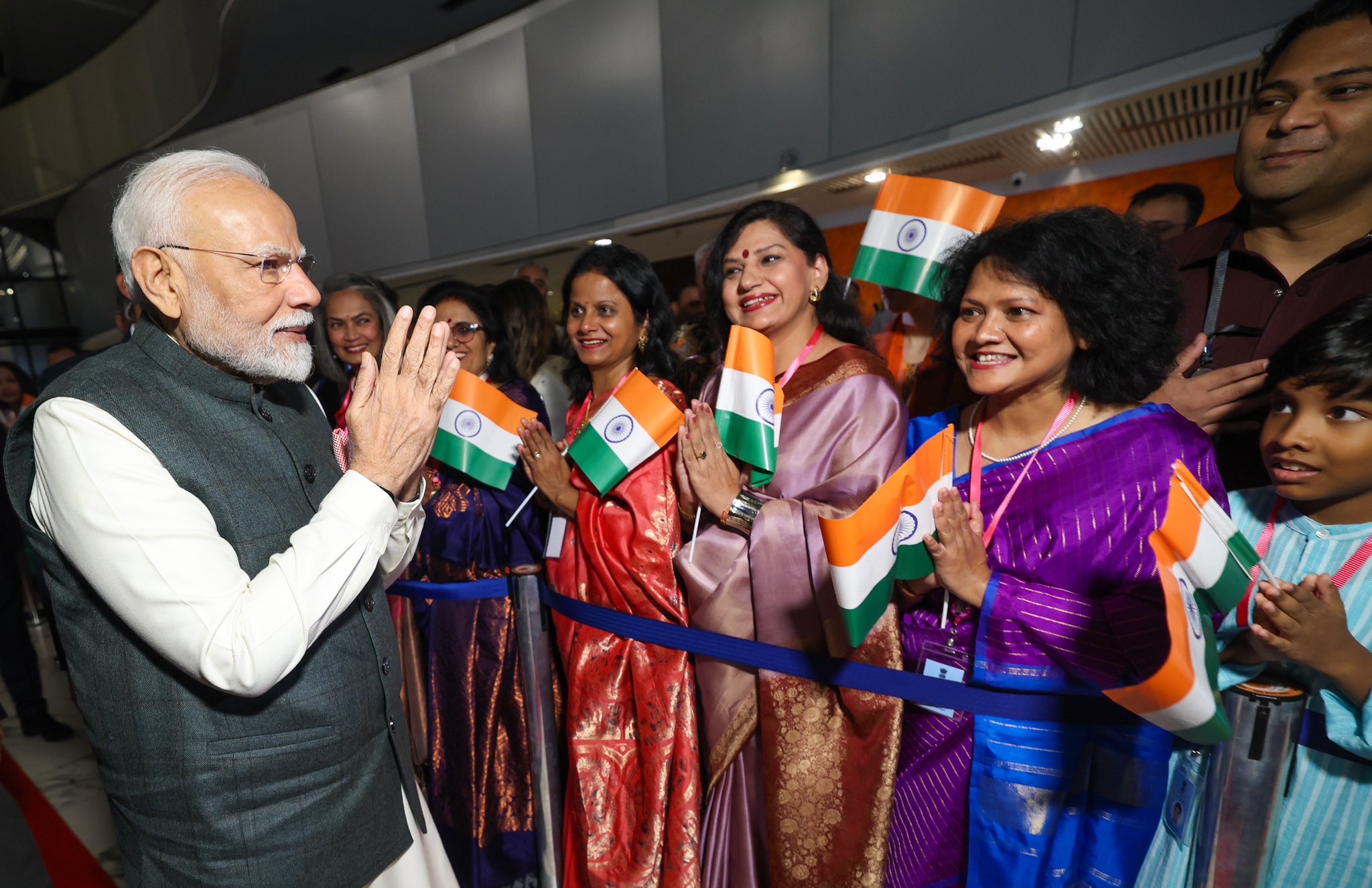Prime Minister Narendra Modi arrived in the Brazilian capital Brasília on Monday, marking the second leg of his visit to Brazil after concluding a “very productive” trip to Rio de Janeiro for the 17th BRICS Summit.
Upon his arrival, Prime Minister Modi was received at the airport by Brazil’s Defence Minister Jose Mucio Monteiro Filho.
During his State Visit, the Indian Prime Minister is scheduled to hold bilateral discussions with Brazilian President Luiz Inácio Lula da Silva.
Briefing reporters on Sunday, India’s Ambassador to Brazil, Dinesh Bhatia, said that both sides are expected to sign four agreements or memorandums of understanding (MoUs). These will cover cooperation in renewable energy, counterterrorism, agricultural research between the Indian Council of Agricultural Research (ICAR) and Brazil’s Embrapa, and the exchange and mutual protection of confidential information.
A relationship rooted in shared values
India and Brazil share a multifaceted relationship which was elevated to a Strategic Partnership in 2006. The two countries also work closely in global and plurilateral forums such as BRICS, IBSA, G20, G-4, the International Solar Alliance and the Global Biofuel Alliance.
The bilateral relationship is underpinned by a shared vision for a just global order, democratic values and the commitment to foster economic growth with social inclusion.
Historically, the cultural exchanges between Brazil and India date back to the Portuguese colonial era. Indian cattle breeds like Gir and Kankrej, exported to Brazil in the early 20th century, have significantly contributed to Brazil’s dairy industry. The popularity of Brazilian television series such as Caminho das Indias has also enhanced India’s image in Brazilian popular culture.
Diplomatic relations were formally established in 1948, with embassies opened in the same year. India’s embassy shifted from Rio de Janeiro to Brasilia in 1971.
Strengthening economic ties
The trade relationship between India and Brazil remains robust. In 2024-25, bilateral trade reached USD 12.2 billion, with Indian exports accounting for USD 6.77 billion and imports from Brazil at USD 5.43 billion. Major Indian exports include petroleum products, agro-chemicals, pharmaceuticals and engineering goods. Brazilian exports to India primarily comprise crude oil, soya oil, gold, raw sugar and cotton.
Indian investments in Brazil are estimated at over USD 6 billion, while Brazilian investments in India are around USD 1 billion. Prominent Indian firms operating in Brazil include Tata Motors, Mahindra Tractors, Infosys, Wipro and Sun Pharma, among others. Conversely, Brazilian companies such as Vale, Stefanini and WEG have a presence in India.
High-level visits and parliamentary exchanges
In recent years, high-level exchanges have imparted momentum to the relationship. President Jair Bolsonaro paid a state visit to India in January 2020 and was the Chief Guest at India’s Republic Day Parade. During the visit, an Action Plan was adopted to strengthen the Strategic Partnership, leading to the signing of 15 agreements across diverse sectors.
Parliamentary engagement has also expanded. Speaker of the Lok Sabha, Om Birla, led a delegation to attend the BRICS Parliamentary Forum in Brasilia in June 2025 and held meetings with Brazilian parliamentary leaders. Earlier, Deputy Chairman of the Rajya Sabha, Harivansh, participated in the G20 Parliamentary Speakers’ Summit in November 2024.
Recently, a multi-party parliamentary delegation led by Dr. Shashi Tharoor visited Brasilia to discuss cross-border terrorism following the Pahalgam attack. They met Vice President Geraldo Alckmin and senior Brazilian officials.
Expanding frontiers: space, energy and health
India and Brazil collaborate in space technology through agreements for peaceful use of outer space and satellite tracking. India notably launched Brazil’s Amazonia-1 satellite in 2021.
In oil and gas, Brazil is India’s largest upstream investment destination in the Americas, with Indian PSUs investing over USD 3.5 billion. The nations are also co-founders of the Global Biofuel Alliance, launched at the 2023 G20 Summit in New Delhi.
Health and traditional medicine are other areas of cooperation. Ayurveda and Yoga are recognised under Brazil’s national policy of alternative medicine, and the two countries have agreed to collaborate on health surveillance, technology transfer and research.














